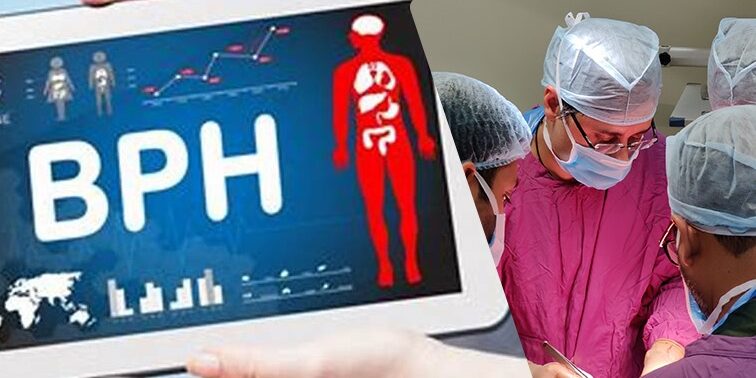What is Benign Prostate Hyperplasia (BPH)?
Benign Prostate Hyperplasia (BPH) not to be misunderstood as a cancer is a condition in which the flow of urine is blocked due to the overgrowth of prostate tissue which pushes against the urethra and the bladder. Also known as Prostate Enlargement is a noncancerous medical condition in which the prostate gland increases in size. It primarily affects older men and becomes more common with the increasing age. If somehow your prostate glands have increased in size, you need not take stress as it’s not cancer. It is a health issue which becomes more common with age.
What is the Prostate Gland?
A Prostate Gland is a small size gland that helps make semen. It is located just below the bladder. It often gets bigger as you get older or your age. It is also known by the name of an enlarged prostate. The most prominent symptom of an enlarged prostate that may create strains on your forehead is that the urine coming out of the bladder is stopped.
Do I Need to Take Stress if I Have an Enlarged Prostate?
If you have an enlarged prostate, you may have symptoms like an increase in the number of times you go to urine at night and difficulty in urination. It is a health issue very commonly seen in older men and more than 1 crore cases come in India every year only of enlarged prostate. This medical condition is perfectly treatable by a medical professional. This medical condition is common for ages 60 or older.
What Symptoms Confirm Benign Prostate Hyperplasia (BPH)?
If you or someone else you know is exhibiting symptoms of Benign Prostate Hyperplasia (BPH), immediate consultation with a urologist is recommended. The common symptoms include:
- Nocturia or Increase in Urination Frequency at Night.
- Difficulty in Urinating or Straining while Urinating.
- Weak Stream of Urine or One That Starts and Stops.
- Dribbling at the End of Urination
- Unable to Empty the Bladder
- Blood in Urine
- Urinary Incontinence
- Urinary Retention
What Are the Causes of Benign Prostate Hyperplasia (BPH)?
- A family history of an enlarged prostate may increase the likelihood of getting Benign Prostate Hyperplasia (BPH).
- At a certain age mostly above 60 years in men prostate can grow the whole life. This condition is common and most seen in men above 60 years.
- Changes in Sex Hormones of Men Above Age 60.
- Diabetes
- Heart Issues
- Obesity
- Prostate Cancer
What Are the Possible Treatments Available for Benign Prostate Hyperplasia (BPH)?
Treatment of Benign Prostate Hyperplasia (BPH) depends on the size of the prostate, age, and overall health of the patient.
Treatment by Medicines
- Medicines relax the bladder neck muscles along prostate muscles for easy passage of urine.
- Few Medicines assist in preventing hormonal changes and thus shrink the prostate.
Procedures
Laser Prostatectomy and TURP:
This procedure is used to provide treatment of mild to severe enlarged prostate. During this procedure, a scope is entered from the tip of the penis within the tube which carries urine from the bladder. The enlarged prostate stops urine flow from the bladder. The laser that is inserted through the scope releases the energy which help in shrinking or removing extra tissues within the prostate that is preventing urine flow.
What Are the Benefits of Laser Prostatectomy and TURP?
- It reduces bleeding risk.
- Shorter hospital stays.
- Fast Recovery.
- Need for Catheter Reduces.
This procedure helps in improving the urine flow within most men. The effect of this procedure is mostly long-lasting.








